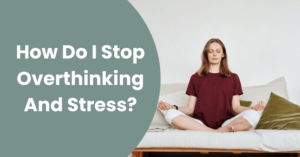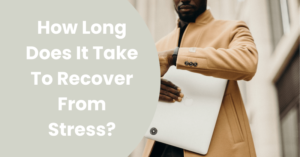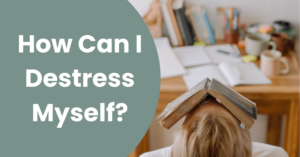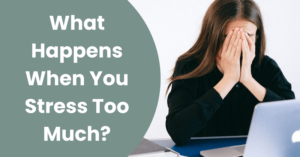Do you know these periods, when you feel extra tired and have no energy whatsoever to do the simplest things? If yes, you may wonder, how do I get my energy and vitality back?
If you feel like you’re always tired and have no energy, it may be due to several factors such as chronic stress, adrenal fatigue, diet, lack of sleep, anemia, deficiencies, depression or certain diseases. I’ll personally recommend doing blood tests and other tests, to find the root cause. Through lifestyle changes, diet, supplementation and exercise you may increase both energy, vitality and mood.
In order to address why you’re always feeling tired and have no energy, we’ll talk about causes, diseases, test methods and how to treat extreme fatigue due to lifestyle factors.
Why Am I Constantly Tired And Have No Energy?
I’ve been there myself, feeling so tired with 10 hours of sleep and even if I had three espresso shots, I still had no energy – fortunately, I found the root cause and could treat my fatigue properly.
When I was feeling extremely tired, I asked myself What Does Adrenal Fatigue Feel Like? – I quickly figured, that was my issue.
I had been through an extended period of stress which collapsed with an eating disorder, which essentially led to undernourishment and extreme fatigue.
– Enough about me. Extreme fatigue may be due to several factors such as diseases and/or lifestyle factors.
These include:
- Adrenal fatigue (due to chronic stress)
- Iron deficiency
- B12 and B9 deficiency
- Lack of sunlight and vitamin D
- Chronic inflammation
- Anxiety
- Depression
- Lifestyle
- Anemia
- Fibromyalgia
- ALS
- Kidney disease
- Cancer
If we disregard diseases like cancer, ALS, fibromyalgia, anemia and kidney disease and look at lifestyle factors, extreme fatigue may be due to lifestyle factors such as chronic stress, diet, life events, inflammation, deficiencies or mood disorders.
Disclaimer: If you suspect any type of disease, I’ll recommend you talking to your healthcare provider. This website is purely for information and is not a self-diagnosis site.
If you’re always feeling tired and have no energy, how do lifestyle factors affect your energy levels?
What Illnesses Can Cause Extreme Fatigue?
Certain lifestyle factors and events may lead to extreme fatigue – for example adrenal fatigue.
Adrenal fatigue primarily happens due to chronic stress, where we’ve been pumping out excessive cortisol and adrenaline for a longer period of time – after a while the adrenal glands can’t keep up and slow down instead. This can lead to feeling extremely tired.
Why do we have chronic stress?
Chronic stress may happen for multiple reasons, such as:
- Traumatic childhood with a dysregulated nervous system
- Working too much or doing too much
- Toxic relationships
- Lack of sleep
- Lack of nutrients and too much caffeine and sugar
- Excessive exercise
- Chronic disease
- Big life events/changes
- Feelings of pressure, lack of control and boundaries
What triggers our stress response is individual – what I can handle and how I respond to certain life events may affect my friend completely differently.
Waking Up Tired And No Energy
If you’re waking up (extremely) tired and with no energy it may be due to adrenal fatigue or depression.
According to studies, up to 90% of people dealing with depression suffer from some degree of fatigue. From my own observations of depression, it makes you more sleepy, in some cases more prone to overthinking and difficulties falling asleep. It may lead to more negatively impacted thoughts.
Our hormones also play a role in depression, especially the neurotransmitter serotonin. But How Do You Know If Your Serotonin Is Low? – Up to 90% of serotonin is made in the gut and diet, stress and lifestyle factors may have an impact on serotonin levels.
Fatigue and depression can look quite similar – but how do you determine if it’s depression or fatigue? I’ll personally recommend my clients to talk to do an OrganiX test through me – and of course, consult with your doctor.
Fatigue Due To Deficiencies
Lack of nutrients may lead to (extreme) fatigue. This includes micro- and macronutrients from our diet, lack of vitamin B, vitamin D, Q10 and iron.
Does Vitamin D Give You Energy? – Up to 1 billion people suffer from vitamin D deficiency. Vitamin D acts like a hormone and is vital for the immune system, endocrine system, metabolic pathways, mood and depression, etc.
Vitamin D deficiency in severe cases may lead to hypocalcemia (low calcium), which can lead you to feeling tired and fatigued.
Vitamin B is the vitamin present in energy metabolism and every cell needs vitamin B according to PubMed Central. Vitamin B needs to be consumed through diet as we don’t synthesize it ourselves.
There are different types of vitamin B, however, a vitamin complex supplement may help you increase energy levels, if you’re vitamin B deficient.
Vitamin B12 and B9 (folate) deficiency can especially cause extreme tiredness and anemia that may cause large red blood cells to not function properly. Vitamin B12 and folate keep our nervous system healthy.
According to PubMed Central, iron deficiency may make you feel tired and fatigued. This is due to a lack of hemoglobin that carries oxygen around the body.
Low levels of Q10 in the cell’s mitochondria may lead to tiredness and fatigue. This means the cells are ‘tired’. Low levels of Q10 may be due to oxidative stress, vitamin B6 deficiency and age.
Have you ever noticed that during the afternoon, you suddenly feel tired and crave that coffee or some sweets?
Sudden Tiredness During The Day
Have you noticed that during the day your energy levels are okay, but suddenly in the afternoon you feel very tired and just want to get a nap?
Our energy level follows the cortisol cycle and circadian rhythm. Your cortisol (stress hormones) are usually highest in the morning and decrease slowly during the day while the circadian rhythm controls our sleep cycle.
Sleep and the quality of sleep may determine our afternoon crash.
Our energy is also connected to our blood sugar – a stable blood sugar may keep a more stable energy throughout the day.
If you have had a decent sleep and been eating nutritious meals during the day – breakfast, lunch and snacks in between, an adrenal cocktail may help you gain some more energy in the afternoon.
An adrenal cocktail contains vitamins and minerals, keeps you hydrated and may combat fatigue.
Not only an adrenal cocktail in the afternoon may help you gain more energy – other factors play a role as well.
How Can I Stop Being Tired All The Time?
If you feel like you’re always tired and have no energy, there’s probably an underlying issue that needs to be addressed.
I’ll personally, as a health coach, recommend a blood test, testing vitamins and minerals. Furthermore, a cortisol test may indicate whether or not you have adrenal fatigue.
As a female, you might be asking yourself Does Estrogen Increase Fatigue? – The simple answer is yes. Hormonal imbalances may make you more tired and fatigued.
This is why I also recommend testing your hormonal balance through a DUTCH test. The DUTCH test is one of the most advanced hormone tests on the market.
By finding the root cause you may be able to get more energy once and for all instead of guessing.
When it comes to extreme fatigue – how do you treat it and get your energy back?
Diet has a great impact on our well-being, I would say food is medicine, but What Foods Support Adrenal Fatigue? – Here you can read all about the causes, and symptoms, and an in-depth guide to a diet supporting adrenal fatigue.
Supplements may have a great impact as well, but What Vitamins Help Adrenal Fatigue? – depending on your individual needs this may include vitamin B complex and vitamin B9 and B12, vitamin D, iron and Q10.
Getting at least 7-8 hours of quality sleep may work wonders. I personally recommend having a completely dark room, having a bedtime schedule and remembering to wind down without the phone before bed.
Depending on your exercise regimen, regular exercise may increase mood and energy levels. Most importantly, something you enjoy – but a long walk as a minimum every day.
Vitamin D and sunlight are factors affecting our energy and mood as well. Getting sunlight (or just natural light) first thing in the morning can affect our circadian rhythm positively.
Lastly, I’ll mention that our mindset can affect our energy. What I mean by that is negative people, stress, a bad work environment, negative self-talk, anxiety and lack of boundaries may drain our energy.






